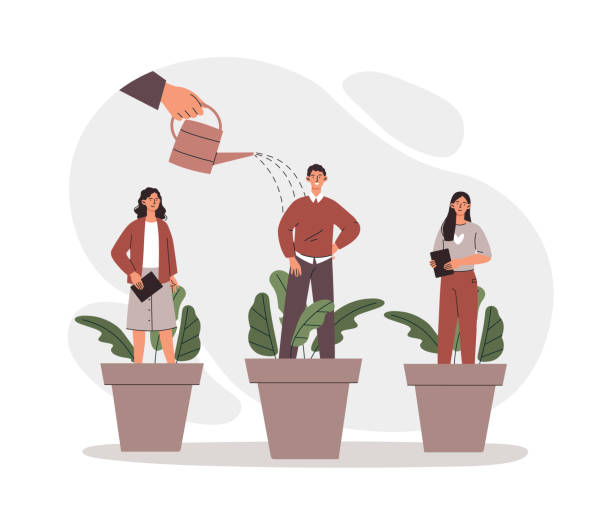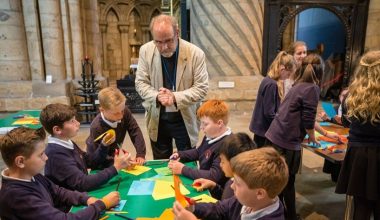Welcome to the fascinating world of social and personal development! While many of us may be familiar with the term, there is often much more to this topic than meets the eye. From improving our communication skills to developing a deeper understanding of ourselves and others, social and personal development can profoundly impact every aspect of our lives.
In this article, we will delve into the intricacies of this fascinating field and uncover some of the surprising and lesser-known aspects of social and personal development that you may never have considered before. So, get ready to discover a new world of growth and self-improvement!

Table of contents
- What is Social and Personal Development?
- How To Improve Social and Personal Development?
- What Are The Critical Aspects of Social and Personal Development?
- What Is The Importance of Social and Personal Development?
- What Are The Common Barriers To Social and Personal Development?
- How To Measure Social and Personal Development Progress?
- Frequently Asked Questions
- Conclusions
- References
- Recommendations
Social and personal development are closely related aspects of human growth and development critical to overall well-being and success. While they are distinct concepts, they are intertwined and influence each other.
Social Development refers to how individuals learn to interact with others and navigate the complex social world. It involves developing social skills, learning social norms and expectations, and building relationships. Social Development begins in infancy and continues throughout the lifespan as individuals encounter new social situations and learn from their experiences.
On the other hand, personal development refers to developing self-awareness, self-esteem, and a sense of purpose in life. It involves understanding one’s strengths and weaknesses, setting goals, and achieving personal growth and self-improvement. Personal development is essential for individuals to reach their full potential and lead fulfilling lives.
The importance of social and personal development cannot be overemphasized. Individuals with strong social skills and healthy personal development tend to have better mental health, stronger relationships, and personal success. They are ready to handle stress and adversity and tend to have a more positive outlook on life.
Many factors can influence social and personal development. These include family background, culture, socioeconomic status, educational opportunities, and life experiences.
There are also many ways to support social and personal development throughout the lifespan. For children, this can include providing opportunities for play and social interaction, enrolling them in extracurricular activities, and promoting positive values such as kindness and empathy.
Also read: What does a Community Development Worker do in 2023?
Social and personal development are critical aspects of human growth and are essential for success in all areas of life. Social Development relates to an individual’s ability to interact with others, form relationships, and communicate effectively, while personal development involves personal growth and self-improvement.
Improving social and personal development can help individuals become more confident, resilient, and empathetic. It can also increase emotional intelligence, communication skills, and self-awareness.
Here are some tips on how to improve social and personal development:
Build Strong Relationships
Building solid relationships with family, friends, and colleagues is vital to social development. Make time to connect with others, listen to their concerns, and show empathy.
Enhance Communication Skills
Effective communication skills are essential for successful social development. Practice active listening, speak clearly and confidently, and try to understand the perspectives of others.
Develop Emotional Intelligence
Emotional intelligence refers to the ability to recognize and manage one’s own emotions and the emotions of others. To improve emotional intelligence, practice self-reflection, identify your feelings, and learn how to manage them effectively.
Set Goals
Setting achievable goals can help with personal development. Identify areas for improvement, set specific goals, and develop a plan to achieve them.
Build Self-Confidence
Building self-confidence is crucial for personal development. Identify your strengths, celebrate your successes, and practice positive self-talk.
Practice Mindfulness
Mindfulness involves being present at the moment and paying attention to your thoughts and emotions. Practicing mindfulness can help improve self-awareness and reduce stress and anxiety.
Learn New Skills
Learning new skills can help with personal development and improve social interactions. Try taking a class or learning a new hobby to develop new skills and meet new people.
Volunteer
Volunteering is a great way to give back to your community, develop new skills, and meet new people. Look for volunteer opportunities in your area and get involved.
Seek Support
Seeking support from friends, family, or a mental health professional can help with personal and social development. Feel free to ask for help when you need it.
Also read: What does a Test Development Engineer do in 2023?
Social and personal development are critical aspects of human development that affect individuals throughout their lives.
Here are some critical aspects of social and personal development:
Emotional Development
Emotional development refers to the ability to recognize and healthily express emotions. This includes learning to manage and regulate emotions and developing empathy and compassion for others. Emotional development is critical in building healthy relationships and social connections.
Cognitive Development
Cognitive development refers to the mental processes that enable individuals to learn, think, reason, and solve problems. This includes developing memory, attention, perception, language, and problem-solving skills. Cognitive development plays a critical role in academic and social success.
Moral Development
Moral Development refers to the development of ethical principles and values. This includes learning to differentiate between right and wrong, developing a sense of fairness, and developing a moral conscience. Moral Development is essential in promoting responsible behavior and good citizenship.
Socialization refers to how individuals learn their culture’s norms, values, and beliefs. This includes knowing how to interact with others, communicate effectively, and behave in social situations. Socialization is critical in promoting healthy relationships and social connections.
Identity Development
Identity development refers to the development of a sense of self. This includes developing a sense of personal identity, as well as a sense of cultural identity. Identity development promotes self-esteem, self-confidence, and a positive self-image.
Attachment
Attachment refers to the emotional bond that develops between individuals. This includes the bond between parents and children, as well as the bond between romantic partners and friends. Attachment is critical in promoting emotional health and well-being.
Gender Identity
Gender identity refers to an individual’s sense of being male or female. This includes developing an understanding of gender roles, as well as developing a sense of gender identity that is consistent with one’s biological sex. Gender identity is critical in promoting healthy relationships and social connections.
Communication
Communication refers to the ability to convey and receive information effectively. This includes verbal and nonverbal communication, as well as developing listening skills. Communication is critical in building healthy relationships and social connections.
Self-Esteem
Self-esteem refers to an individual’s sense of self-worth and self-respect. This includes developing a positive self-image and growing confidence in one’s abilities. Self-esteem is critical in promoting emotional health and well-being.
Empathy
Empathy refers to the ability to understand and share the feelings of others. This includes developing compassion, as well as developing the ability to put oneself in another’s shoes. Empathy is critical in promoting healthy relationships and social connections.
Also read: What is Comparative Education? Full Explanation With FAQs
Social and personal development plays a crucial role in shaping a person’s identity, behavior, relationships, and overall quality of life.
Social Development is an ongoing process that begins in infancy and continues throughout an individual’s life. It is essential because it helps individuals to:
- Build relationships: Social Development helps individuals to build meaningful relationships with family, friends, and colleagues. It also helps to develop a sense of community and belonging.
- Enhance communication skills: Effective communication is essential for success in all areas of life, including personal and professional relationships. Social Development helps individuals to develop excellent communication skills.
- Increase self-awareness: Social Development helps individuals to become more self-aware. It enables individuals to understand their emotions, thoughts, and behaviors and how they affect others.
- Develop emotional intelligence: Emotional intelligence is the ability to understand and manage one’s emotions and the emotions of others. Social Development helps individuals to develop emotional intelligence.
- Improve problem-solving skills: Social Development also helps individuals to develop problem-solving skills. It allows individuals to identify problems, analyze situations, and develop appropriate solutions.
Personal Development:
Personal development is crucial because it helps individuals to:
- Enhance self-awareness: Personal Development helps individuals to become more self-aware. It enables individuals to understand their strengths, weaknesses, and areas for improvement.
- Improve self-esteem: Personal development helps individuals to improve their self-esteem and self-confidence. It enables individuals to develop a positive self-image and a sense of self-worth.
- Increase motivation: Personal Development helps individuals to increase their motivation and drive to achieve their goals.
- Develop new skills: Personal Development also involves learning new skills and acquiring knowledge. It allows individuals to broaden their horizons and expand their potential.
- Improve decision-making skills: Personal development helps individuals to develop better decision-making skills. It enables individuals to make informed decisions based on their values and priorities.
Also read: What are the Different Types of Higher Education Degrees in 2023?
Social and personal development is essential for individuals to become well-rounded and successful in various areas. However, several common barriers can impede an individual’s social and personal growth.
These barriers can arise from environmental, emotional, psychological, and social factors.
Lack of Support System
A supportive network is crucial to personal and social development. This support can come from family, friends, or even professionals. However, without a support system, individuals can find it challenging to grow, learn, and progress toward their goals. The lack of a support system can also lead to feelings of isolation, low self-esteem, and depression.
Low Self-Esteem
Low self-esteem is another significant barrier to social and personal development. People with low self-esteem often struggle to assert themselves and may avoid social situations. They may also need more confidence in their abilities, hindering their personal growth. Low self-esteem can stem from various sources, such as negative experiences, criticism, or comparison.
Limited Resources
Limited resources such as financial, educational, or access to basic needs can limit an individual’s social and personal growth opportunities. Individuals from disadvantaged backgrounds may need help to develop the skills and knowledge necessary to pursue their dreams. Without the resources to improve themselves, individuals may find it difficult to advance in their careers or other aspects of their lives.
Mental Health Issues
Mental health issues such as anxiety, depression, and post-traumatic stress disorder (PTSD) can hinder social and personal development. These conditions can affect an individual’s ability to communicate, form relationships, and pursue goals. Mental health issues may require treatment or therapy to overcome.
Negative Influences
Negative influences such as peer pressure, bullying, or unhealthy relationships can also hinder social and personal development. These influences can affect an individual’s self-esteem, confidence, and behavior. They may discourage individuals from pursuing their goals or making positive life changes.
Lack of Motivation
A lack of motivation can also be a barrier to social and personal development. They may also lack the drive to learn new skills or pursue new opportunities.
Fear of Failure
Fear of failure is another common barrier to social and personal development. Individuals who fear failure may avoid taking risks or pursuing their dreams. They may also lack the confidence to try new things or take on new challenges.
Also read: How do I Become a Catholic Nun in 2023? Full Descriptions
Below are some practical ways to measure social and personal development progress.
Goal Setting and Tracking
Goal setting is a crucial step in measuring social and personal development progress. Individuals should set realistic, specific, measurable goals to track their progress accurately.
Once goals are set, individuals can track their progress using various methods, such as journaling, creating a habit tracker, or using an app. By monitoring progress, individuals can see how far they have come and what they need to do to achieve their goals.
Self-Assessment
Self-assessment is an effective way to measure social and personal development progress. Individuals can reflect on their progress by asking themselves questions such as:
- Have I improved my communication skills?
- How have my relationships with others changed?
- Have I developed new skills or knowledge?
- How has my self-esteem improved?
By self-assessing, individuals can identify areas for improvement and track their progress over time.
Feedback
Feedback is an effective way to measure social and personal development progress. Individuals can seek feedback from friends, family, colleagues, or mentors. It can help individuals identify areas for improvement and provide insight into how others perceive their progress. It’s essential to receive constructive feedback and use it to improve.
Behavioral Changes
Behavioral changes are another effective way to measure social and personal development progress. As individuals develop new skills, their behavior should change accordingly. Behavioral changes can be observed by others and are an indicator of progress.
Performance Evaluations
Performance evaluations are a valuable tool for measuring social and personal development progress in a professional setting. Employers can evaluate an individual’s progress based on their performance in their role, and employees can set goals and track their progress over time. Performance evaluations can provide insight into an individual’s strengths and areas for improvement and help individuals identify areas where they need to focus their development.
Surveys and Assessments
Surveys and assessments are another effective way to measure social and personal development progress. Individuals can take self-assessments, such as personality tests or emotional intelligence assessments, to measure their progress in specific areas. Surveys can also be used to gather feedback from others and identify areas for improvement.
By tracking progress and identifying areas for improvement, you can continue to develop and achieve success in your personal and professional lives.
Frequently Asked Questions
Social Development refers to the process through which an individual learns to interact with others meaningfully and effectively. It involves acquiring the skills, attitudes, and values necessary to build positive relationships and engage in social activities with others.
Personal development refers to improving oneself through activities that enhance skills, knowledge, and self-awareness. It includes learning new skills, pursuing hobbies, self-reflection, and setting personal goals.
Social and Personal Development are closely related, as social development often requires developing personal skills and qualities.
They are critical factors in building healthy relationships with others, achieving personal goals, and contributing to society meaningfully. Additionally, they can help individuals build self-esteem, resilience, and a sense of purpose.
There are many ways to promote your own social and personal development, such as setting goals, engaging in activities that challenge you, seeking new experiences and perspectives, practicing self-reflection and self-care, and building positive relationships with others.
Parents and caregivers play a critical role in promoting social and personal development in children, as they provide the support and guidance necessary for children to develop essential skills such as empathy, communication, and self-awareness. They can also model healthy behaviors and values, significantly impacting children’s development.
Schools and communities can support social and personal development by creating environments that promote positive relationships, encourage self-reflection and personal growth, and provide opportunities for learning and engagement. This can include programs promoting empathy and social-emotional learning, community service opportunities, and mental health and wellness resources.
Conclusions
Social and personal development are vital components of a fulfilling and successful life. By understanding the importance of building positive relationships, developing self-awareness, and pursuing personal growth, individuals can unlock their full potential and contribute to a happier and healthier world.
References
- wikipedia.org – Personal development
- forbes.com – The Fuel Of Personal Development Is Motivation
- cd.edb.gov.hk – PERSONAL AND SOCIAL DEVELOPMENT PROGRAMME


